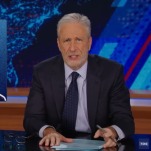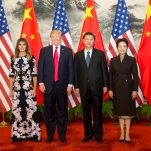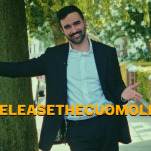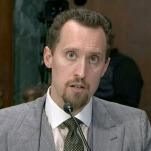Dear rappers: please stop writing corny songs about technology
In 1979, when the Sugarhill Gang’s Big Bank Hank bragged, in the iconic hip-hop song “Rapper’s Delight,” that he had “a color TV, so I can see / the Knicks play basketball,” it was the start of a 35-year love affair between rappers and technology.
Ever since, hip-hop artists have periodically dipped into the lexicon of gadget blogs to write their lyrics. Rapping about the latest technology on the market is a smart move commercially; it indicates that you can afford these things, and that, presumably, you know how to use them. It’s a signifier of both status and savvy.
At first, the rap world’s references to technology were practical and subtle; they referred to quotidian acts like placing a call, sending a message, or checking a voicemail. In 1992, Ice Cube invoked the popular technology of the time: a pager. (“Had to stop at a red light/ Looking in my mirror and not a jacker in sight/ And everything is alright/ I got a beep from Kim, and she can f*ck all night.”)
But in recent years, technology has taken the foreground in popular hip-hop songs. Now, it’s not enough to refer to a gadget casually, as a mode of communication between friends or lovers. Today, rappers make songs about technology. Specific brand names are included, often with no real purpose other than signaling to listeners: I’m young, I’m with it. It’s audio sponsored content, basically. And a lot of the time, it’s incredibly corny.
Earlier this month, the video for “Double Tap,” a song by Jordin Sparks featuring 2 Chainz was released, with a chorus that went, “Bet you won’t double tap that h*e.” It’s a reference, of course, to the double-tapping act of liking a photo on Instagram; when I heard it, I cringed almost as much as I did when I heard Fat Joe’s song from three years ago, “Instagram That H*e.” Nicki Minaj has also used the double-tap entendre. A line in her song “Four Door Adventure,” goes: “I’mma a keep a linebacker, tell ’em tackle for me/ Yo, you seen my last pic, go double-tap that for me”.
Instagram is a particularly popular reference point for rappers. Trinidad James’ song “All Gold Everything” has the line: “This one for them colleges, them bad h*es at Spelman/ Shout out to them freshmen/ On Instagram straight flexin’.” IamSu!’s “Hipster Girls” shouts out not just Instagram, but Tumblr:
-

-

-

-

-

-

-

-

-

-

-

-

-

-

-

-

-

-

-

-

-

-

-

-

-

-

-

-

-

-

-

-

-

-

-

-

-

-

-

-

-

-

-

-

-

-

-

-

-

-

-

-

-

-

-

-

-

-

-

-

-

-

-

-

-

-

-

-

-

-

-

-

-

-

-

-

-

-

-

-

-

-

-

-

-

-

-

-

-

-

-

-

-

-

-

-

-

-

-

-

-

-

-

-

-

-

-

-












































































































